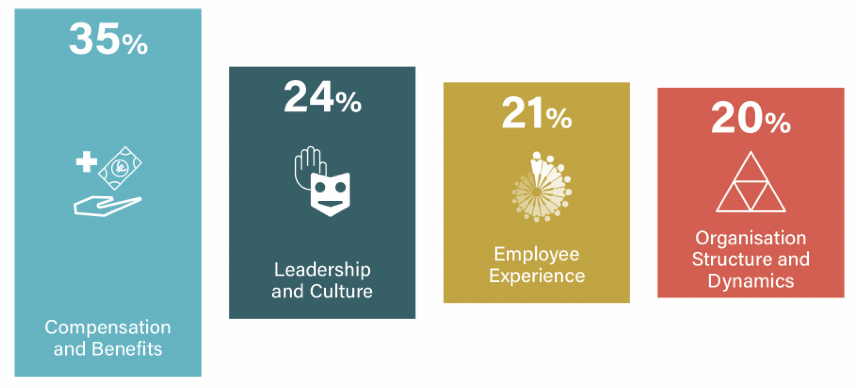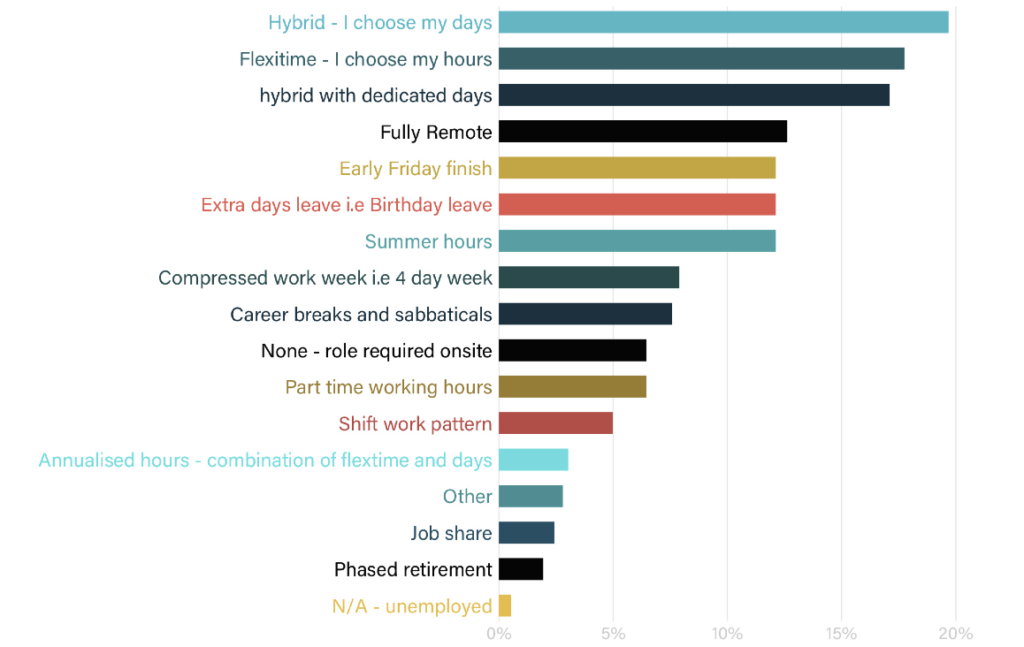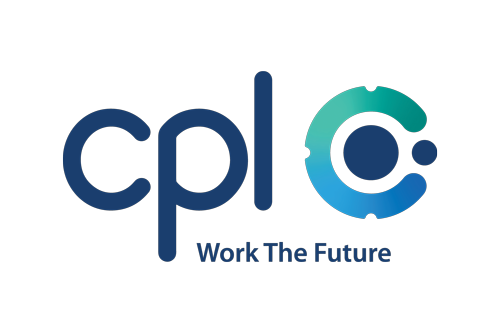What we want from work

Leadership and culture are not quite eating compensation and benefits for breakfast but it is getting closer to parity when it comes to what people want from a modern organisation, and therein lies the opportunity for public sector leaders, writes Barry Winkless, Head of Cpl’s Future of Work Institute.
The perennial question ‘what do we want from work?’ always sparks at least a glimmer of interest in most of us. Work, after all, is a very personal business. Our most recent research programme centred on the Changing Expectations of Work and Life (surveying more than 1600 respondents across sectors) attempts to shine a brighter light on that very question. And before you ask, yes compensation and benefits are at the top of the ‘what we want from work’ tree but there is lot of evidence from our research to suggest that many of us are moving to a ‘more than just money’ stance when it comes to work.
That is good news for public sector leaders seeking to create destination organisations that enable people, and indeed, themselves to be at their best. But the strategy has to be purposeful, connected, designed, and human centred.
The big four
When we asked participants to prioritise between the four most important reasons for choosing and staying with an employer across compensation and benefits (which included flexible working), leadership and culture, employee experience, organisation structure and dynamics (which included elements like business stability and reputation) – compensation and benefits at 35 per cent came out on top, followed by leadership and culture (24 per cent) employee experience (21 per cent) narrowly ahead of organisation structure and dynamics (20 per cent).
At first glance probably no surprises, but when we delved a little deeper and looked at first and second priorities combined, compensation and benefits, still on top came out at 62 per cent but followed not too far behind by leadership and culture at 54 per cent. It is not quite ‘leadership and culture eating compensation and benefits for breakfast’ but it is interesting to see a growing parity between these two areas.
Compensation and benefits still number one with flexibility the big benefit
Remuneration as expected was highlighted as the most important factor (32 per cent) but it was closely followed by flexible working arrangements (26 per cent). We purposely included flexible working arrangements in the compensation and benefit element as from previous studies employees are now seeking these types of arrangements as a critical factor in their overall package. More than 70 per cent of employees are now availing of more than one form of flexible working arrangement.
Leadership and culture
Within the leadership and culture element of the study, the importance of culture, values and ethics was highlighted and came out top at 27 per cent, followed by work environment (25 per cent) and leadership behaviours (24 per cent). Work environment, which was included in this element as it can have a major impact on the culture of an organisation, is becoming more important due to normalised hybrid working practices. People expect when they do ‘make the effort to come in’ to have a welcoming, collaborative and inviting space.
It is an often-used quote that people do not leave companies they leave leaders – and this is borne out by the study. Leadership behaviours are a major attraction, retention, but also unfortunately, an attrition driver. There is a big opportunity here for public sector employers to double down on these areas and perhaps reassess and redesign what they are currently doing.
Employee experience: Seeking balance and meaning
Far and away the most important factor within the employee experience element of the study was work/life balance (40 per cent) followed by meaningful and stimulating work (21 per cent). Some recent studies from other sources have highlighted that in some cases work/life balance is becoming even more important than compensation; but I am not so sure. However, taken alongside the relative importance of flexible working, from our research it is safe to say that any meaningful talent strategy needs to have flexibility and work life balance at its centre to be successful, coupled with a focus on involving employees in varied work and projects.
Organisation stability and growth
The most important factor in this element was organisation stability and growth (34 per cent) followed by organisation structure (22 per cent) and mission and purpose (17 per cent). Interestingly, CSR and sustainability was cited as the least important factor at 5 per cent. So perhaps there is work to do by organisations in re-igniting the needs for net benefit organisations with a focus on positive community and environmental impact. It is probably no surprise that employees seek organisations that are growing and stable.
Conclusion
When trying to create a destination organisation, we can often focus on the wrong things. From our research, if public sector leaders double down on areas like flexibility, leadership behaviours and development, culture and meaningful work success will follow. Simply put, forget the fancy stuff; focus on firing up the fundamentals.
For a deeper dive into our research which also covers ‘gender and generations’ see our contact details below to arrange a 1.5 hour research workshop.
T: +353 1 614 6000
E: hello@futureofwork.ie
W: www.cpl.com








